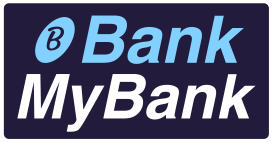The UAE has a sophisticated banking industry, as one would expect from a large global financial hub. Banks in the UAE are quick to embrace new technologies, from blockchain to artificial intelligence. Expats living in the country typically benefit from this proactive approach; bank officials frequently visit residents in their homes or offices to assist money transactions. Computerized and mobile banking are also well-known, and there is a nationwide network of ATMs.
This article serves as an introduction to banking in the United Arab Emirates, including a primer on the UAE’s currency and payment systems.
Read More: A digital ecosystem is launched by the ICICI Bank for the MSMEs
An overview of banking in the United Arab Emirates
People sometimes refer to the Emirates as the Switzerland of the Middle East because it is a peaceful investment destination in a volatile region. This is partly owing to the UAE’s convenient banking system. There is no doubt that the country is a safe haven for many ultra-high-net-worth individuals.
Given the size of the population, many examiners believe the onshore banking sector is overcrowded. The UAE Banks Federation represents 48 local and foreign banks operating in the country, ensuring a robust budgetary industry. There are 22 national banks among them. The UAE’s currency
Each of the seven emirates in the UAE has its own currency, the dirham. The term dirham is abbreviated formally as AED, or more colloquially as Dh or Dhs. 100 fils make up one dirham. The dirham, like other Persian Gulf currencies, is permanently tied to the US dollar, at an exchange rate of AED3.67 to US$1. In other words, one AED is around $0.22294. As of August 2019, the UAE’s official exchange rate was AED4.06 to €1 and 4.48 to GBP1.
UAE dirhams are the country’s currency
The dirham was introduced two years after the UAE’s federation. It was officially adopted on May 19, 1973, as a standard currency, replacing the Qatar and Dubai riyals. The Qatari riyal and Dubai riyal circulated in all emirates except Abu Dhabi, where the dirham, instead of the Bahraini dinar, has replaced it since 1966.
How to Set Up a Bank Account in the UAE
In the UAE, opening a bank account is simple. However, depending on the type of account, the procedure can take anywhere from a day to a couple of weeks. In general, once you obtain your resident visa, you can go to a bank’s website or phone their customer service number to open a new account. To facilitate the procedure, an agent will often come to your office or home within a day or two.
Islamic finance in the United Arab Emirates
Given its strong focus on the global Islamic economy, the UAE’s Islamic banking sector is generally of high quality. There are eight recognized Islamic banks in the UAE, as well as 23 Islamic windows run by conventional banks in the UAE. These constitute 19% of the total assets of the banking system.
International banks in the United Arab Emirates
In total, 26 international banks are active in the UAE. A large number of these licenses were issued prior to the creation of the UAE Central Bank. Seven are from the United Kingdom, France, and the United States, while the remaining foreign banks are from the Middle East, North Africa, and South Asia. HSBC, Citibank, Standard Chartered, Bank of Baroda, and Habib Bank AG Zurich provide personal banking services.
Money transfers
Money transfers Nearby money transfers: Once you have added a beneficiary to your account, local money transfers between UAE banks can be completed within a day or two. This process can take a day or two depending on where you bank in the UAE. Not every neighborhood exchange is free, and some banks may need a copy of the recipient’s Emirates ID and passport to avoid money laundering.
Read More: New Hyundai Creta Knight Edition priced at Rs 13.51L in India
Bank cards that have been lost or stolen in the UAE
Banks in the UAE are well prepared to deal with lost or stolen cards. New cards are typically issued between two to five business days, depending on the card supplier. When you discover a misplaced card, contact your bank or credit card company and request that it be blocked. You will almost probably need to file a police report, whether you are at home or overseas.
Banking security and deception in the UAE
The UAE has seen numerous sorts of bank deception, ranging from smishing to phishing. In reality, there were over 800 cyberattack cases in Dubai in the three years leading up to June 2019. Authorities and institutions in the UAE have invested extensively in several open awareness campaigns over the years to educate clients about cyber deception, and strict regulations to punish cybercriminals have subsequently been implemented.





